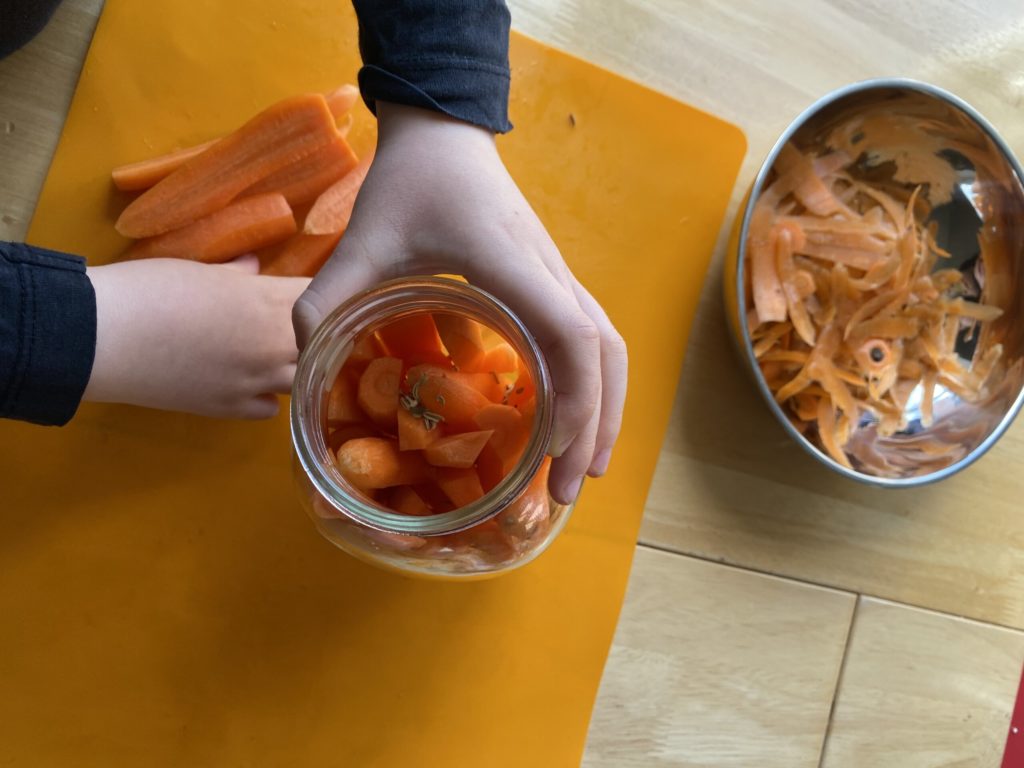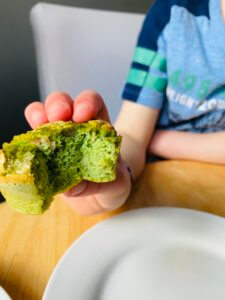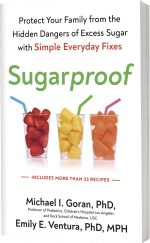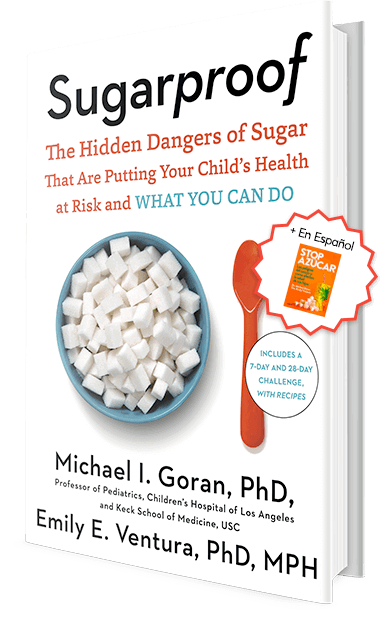This quick and easy recipe for fermented carrot sticks and cauliflower florets is a great way to include veggies and probiotics in your children’s diet and promote their gut health. And as it turns out, it is also a convenient way to prep veggies in advance so they are ready to put in lunchboxes the morning of.
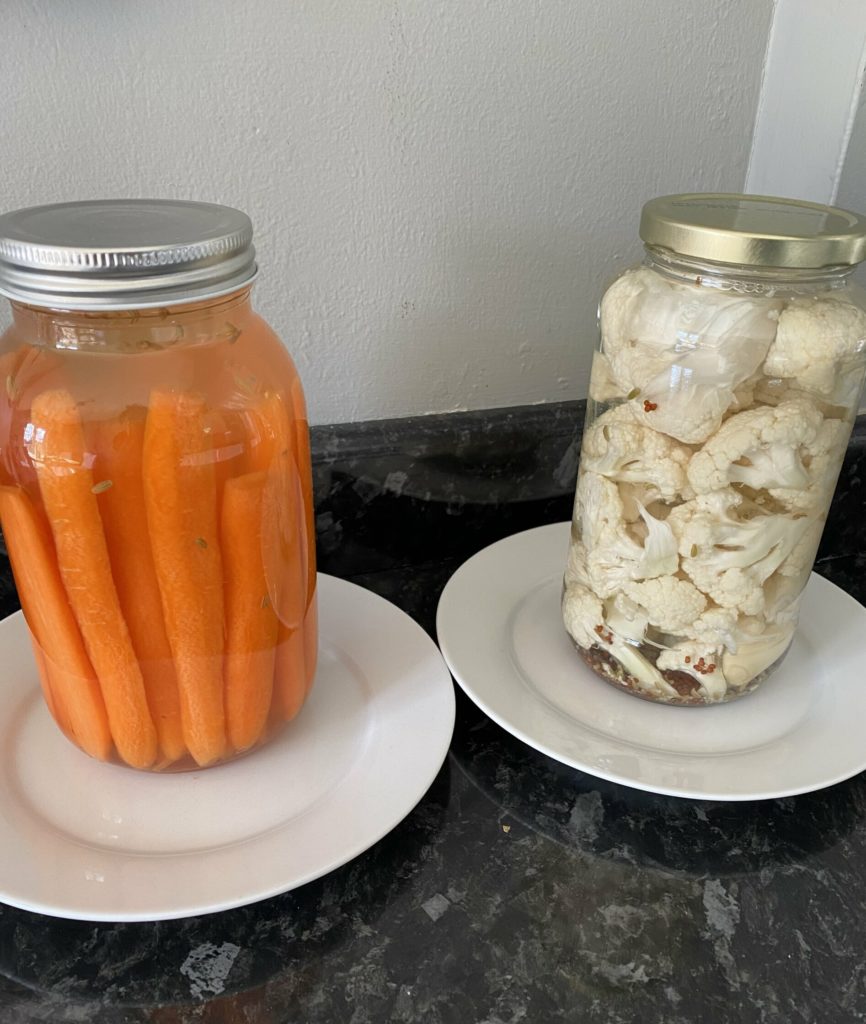
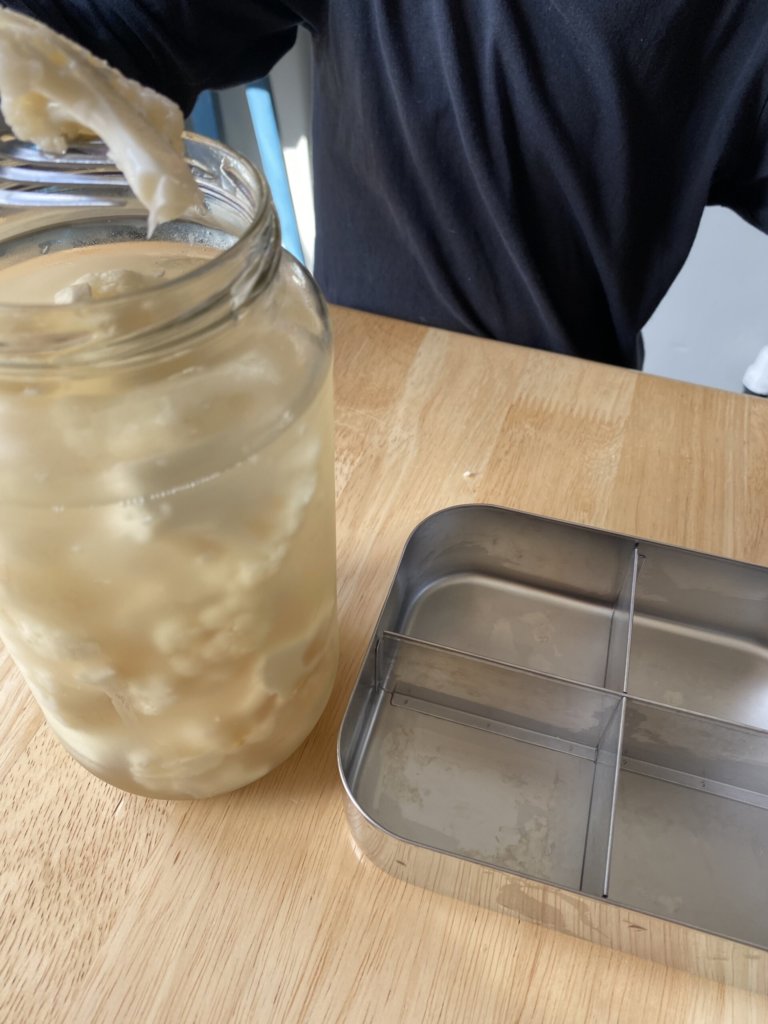
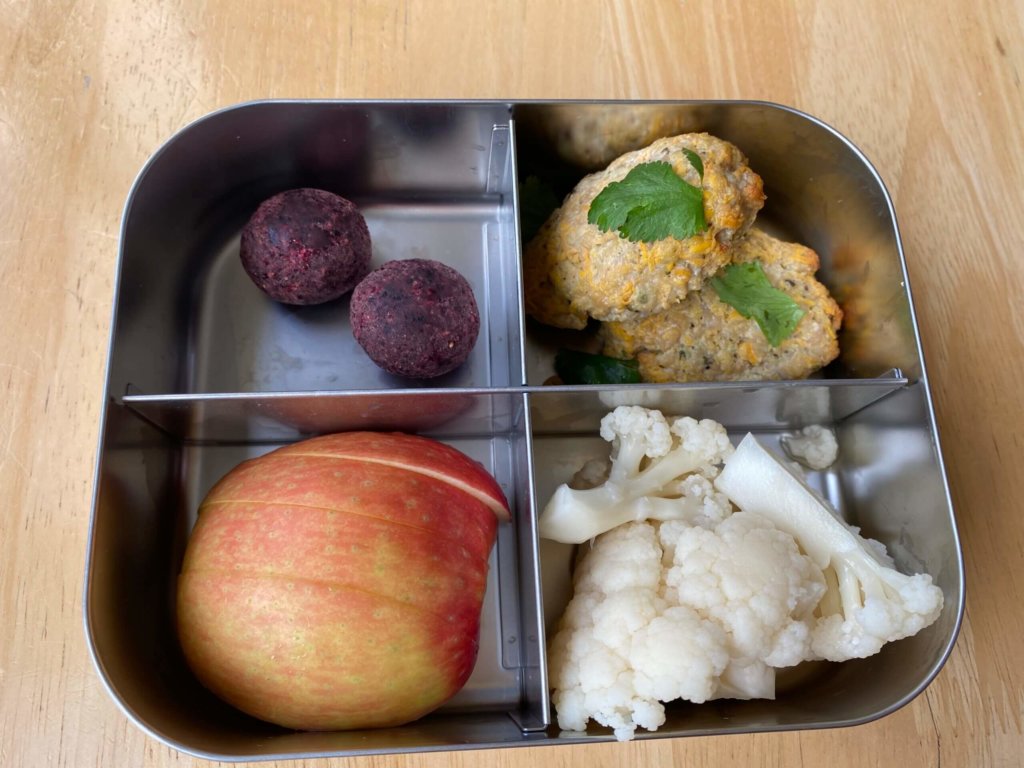
As we talk about in Sugarproof, gut health is vitally important. It has been estimated that 70% of the immune system lives in the gut. So in order to ensure immune health and reduce systemic inflammation, it is important that the gut is sufficiently populated with beneficial bacteria.
When the gut is out of balance and becomes overpopulated with harmful bacteria, which is likely to happen when your diet is high in sugar and processed foods, it can cause inflammation. Inflammation, in turn, can make the body less able to respond to pathogens such as Covid-19. This means that gut health is even more important now than ever, and especially for children who are not yet able to be vaccinated for the virus.
In order to promote gut health, it’s important to limit sugar and processed foods and eat a wide variety of plant foods. This provides the gut with prebiotics, or types of fiber that feed the beneficial organisms in the gut. It’s also recommended to consume probiotic foods that already contain beneficial bacteria, such as yogurt, kefir, miso, and picked/fermented veggies like these.
Try not to be intimidated at the idea of making these as the method is actually really simple. You don’t need to do some of the steps that you would for other fermented products like sterilizing the jars. It’s a fun entry level fermentation project that kids can help with too.
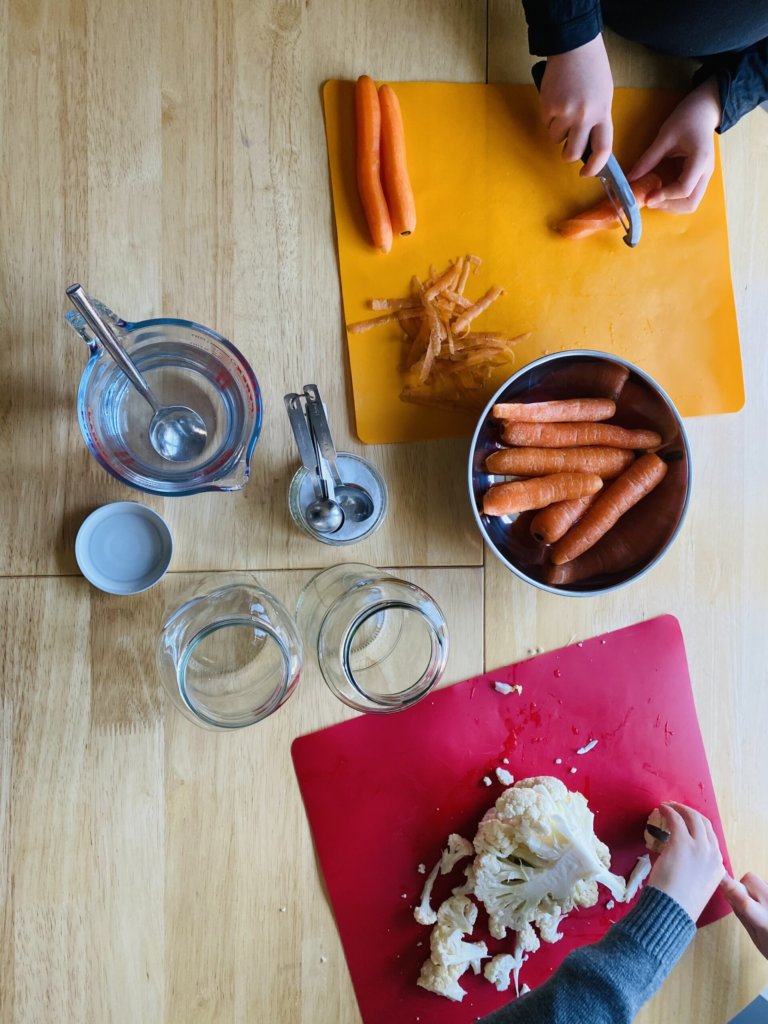
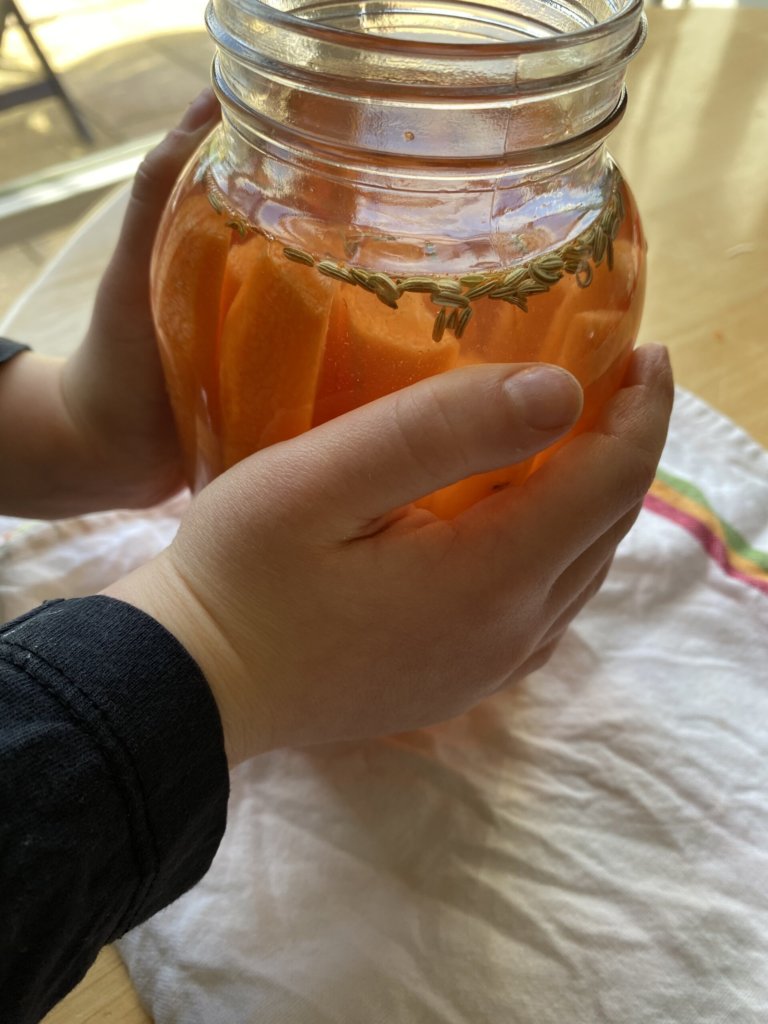
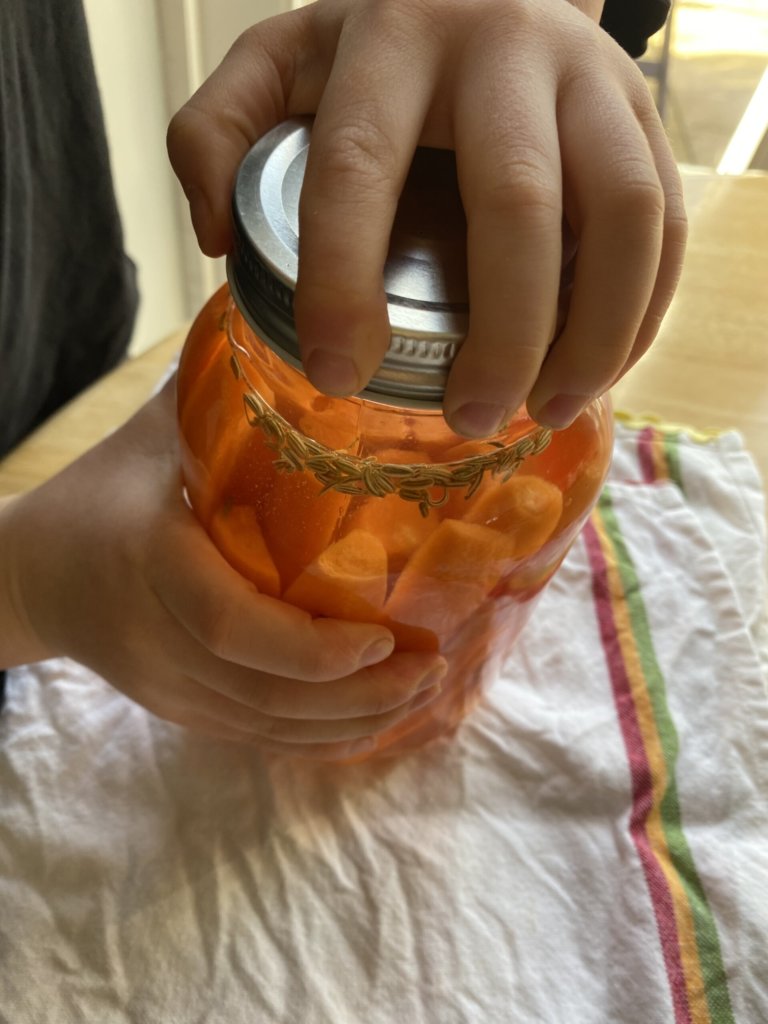
Opening the jars to discover that they have gone “fizzy” can be really exciting and many kids like the little tingle they feel on their tongue when they try them. In addition to packing these in lunches, try them cut up or grated and used to top salads or soups or used as a condiment in a sandwich or wrap.
One of my (Emily’s) sons like carrot sticks the best and my other son cauliflower, so that is what I chose for this recipe, but you can experiment with other vegetables as well. Check this chart to give you an idea of other options and the strength of the brine to use. For carrots and cauliflower, the goal is a 2% salt brine solution, which works out to roughly 1 teaspoon of salt per cup of water. If you want to be precise, you can weigh out the salt given that different types of salt (coarse vs. fine) will have different volumes. However, I have had no problems using a finely ground sea salt and a teaspoon measure rather than a scale. Himalayan salt works well also. Try to avoid using salt with iodine in it as it may affect the fermentation. Chlorinated water may also cause problems by killing beneficial bacteria, so use filtered tap water or bottled spring water if the water in your area is chlorinated.
You can also put in other flavorings like bay leaves, dill, or coriander seeds if you prefer. Finally, you can use whatever jars you have on hand. The ones I chose were 1 quart (4 cup) capacity. If you jars are smaller, just use 2.
Ready to get fermenting?
The method is the same for both carrot sticks and cauliflower florets, though the quantities of ingredients differ slightly (more carrots fit in a jar than cauliflower), so I am listing the ingredients separately here followed by a shared method. Hope you and your kids enjoy making and eating these!
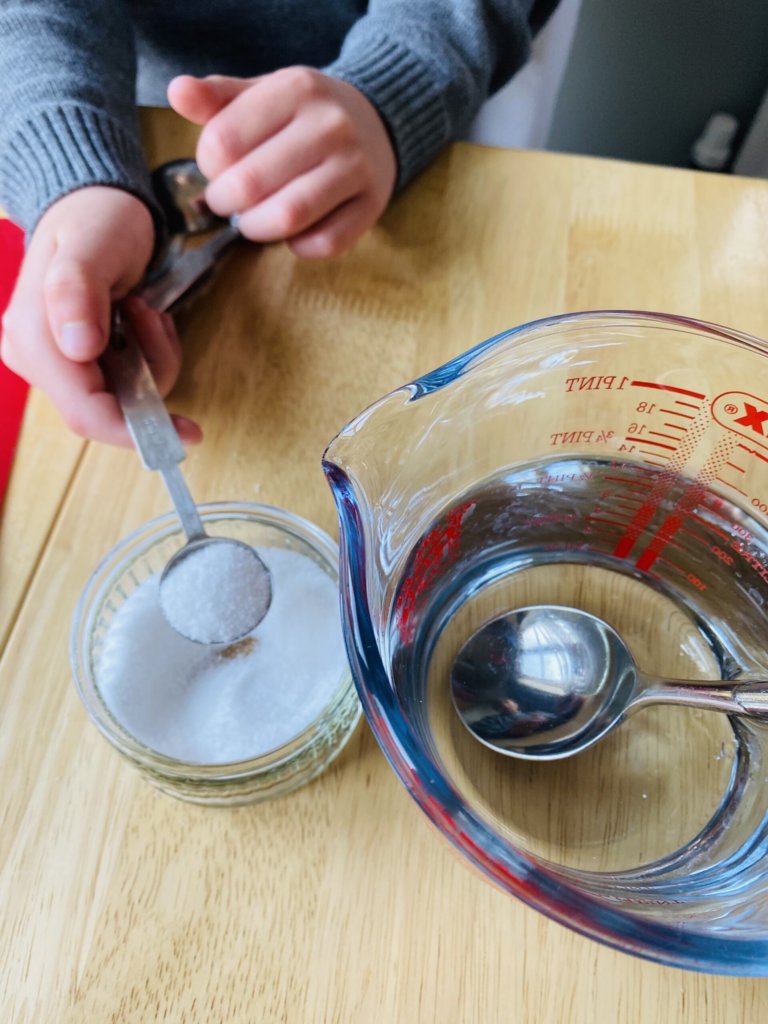
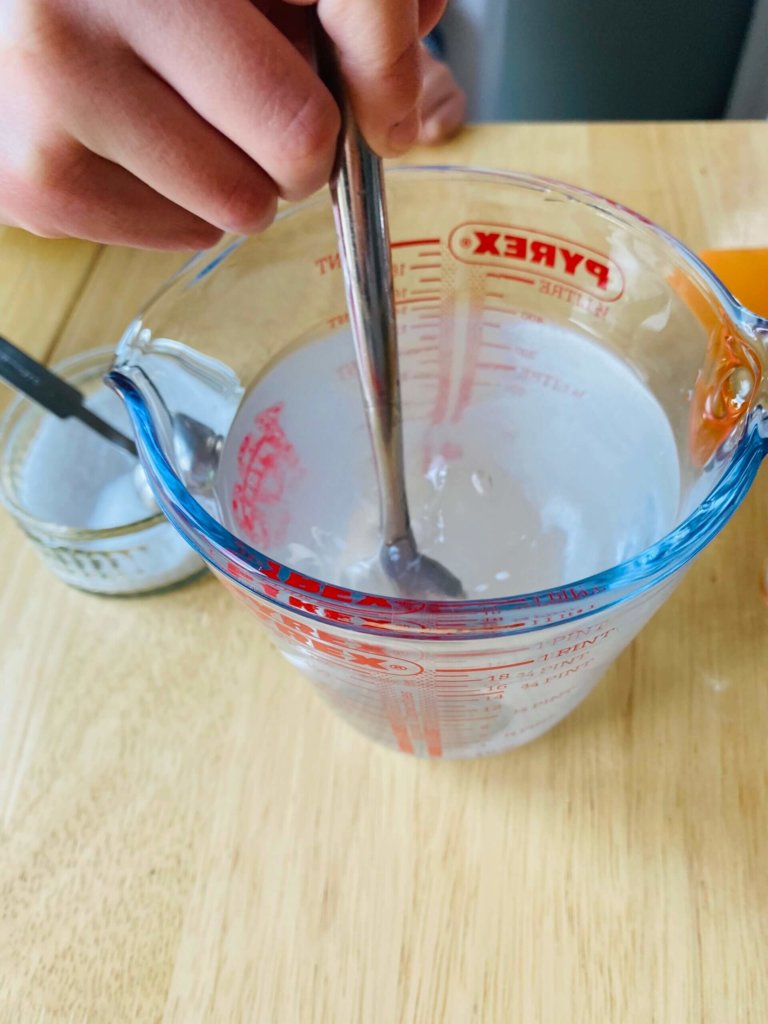
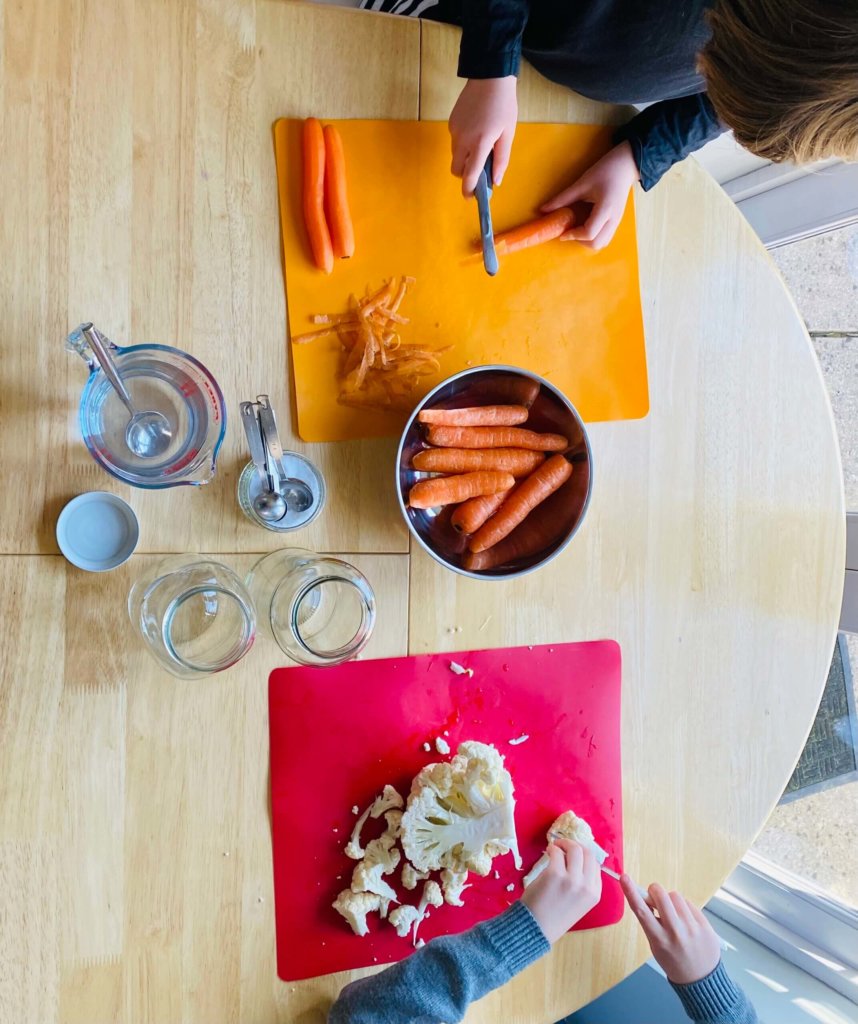
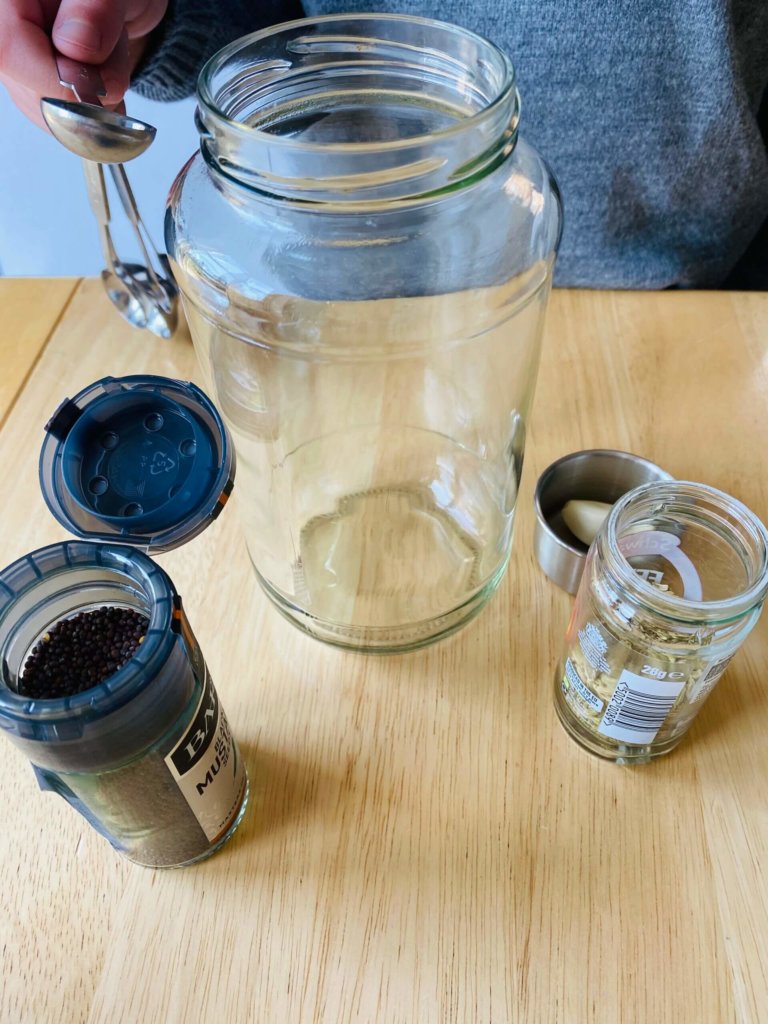
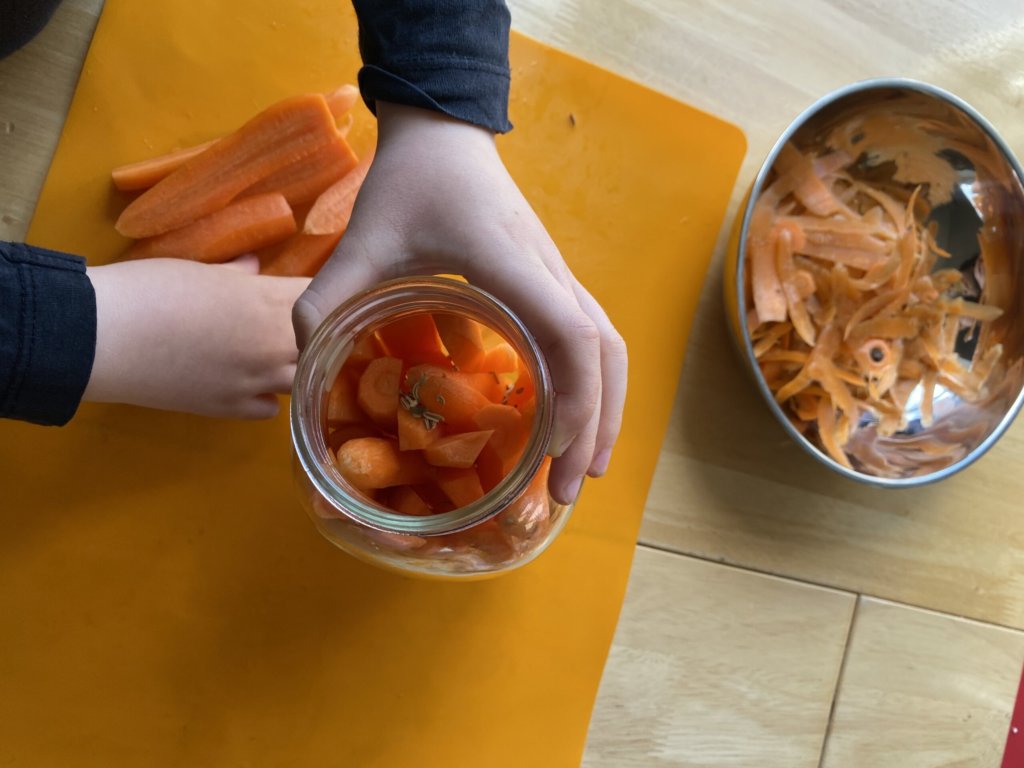
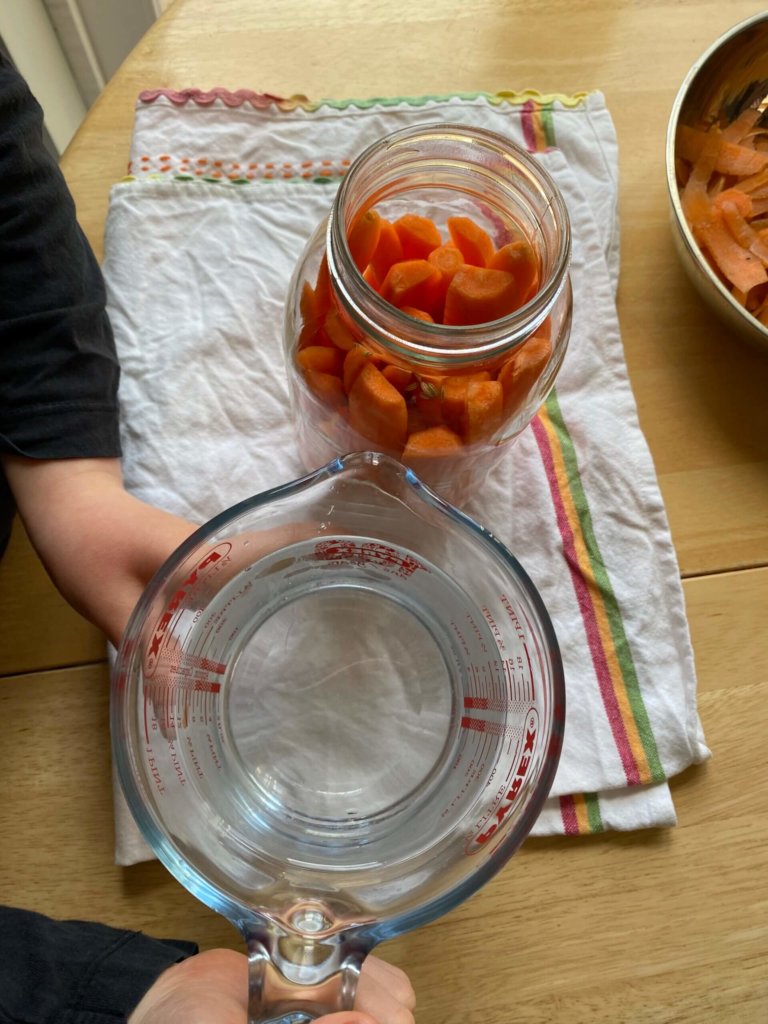
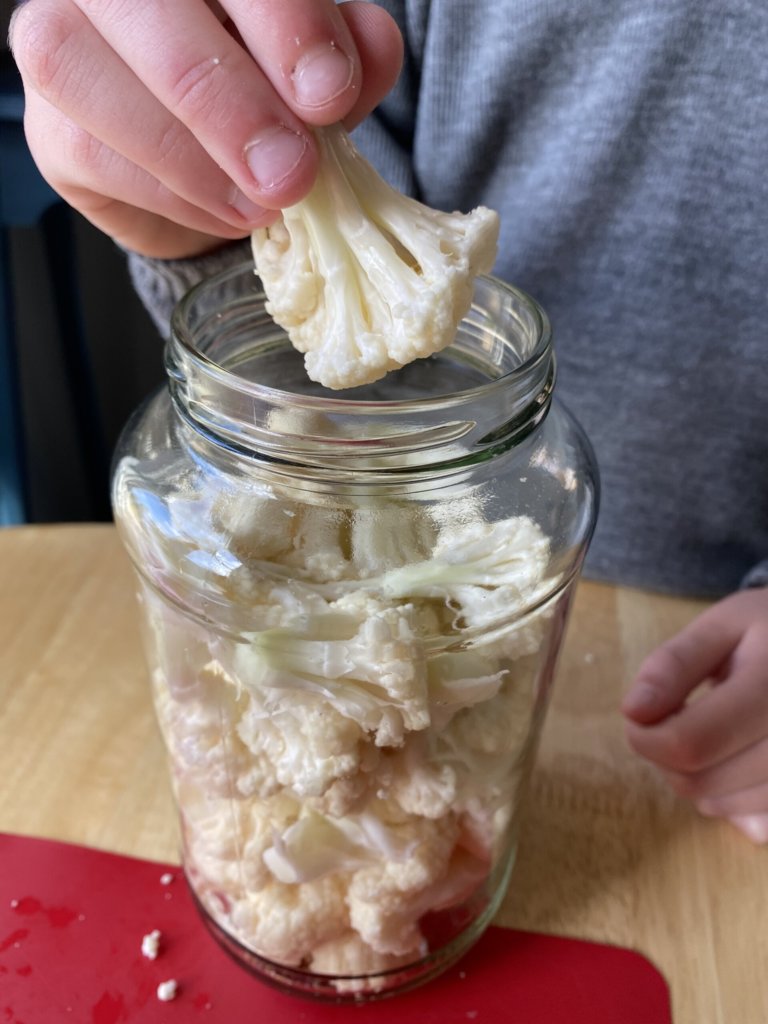
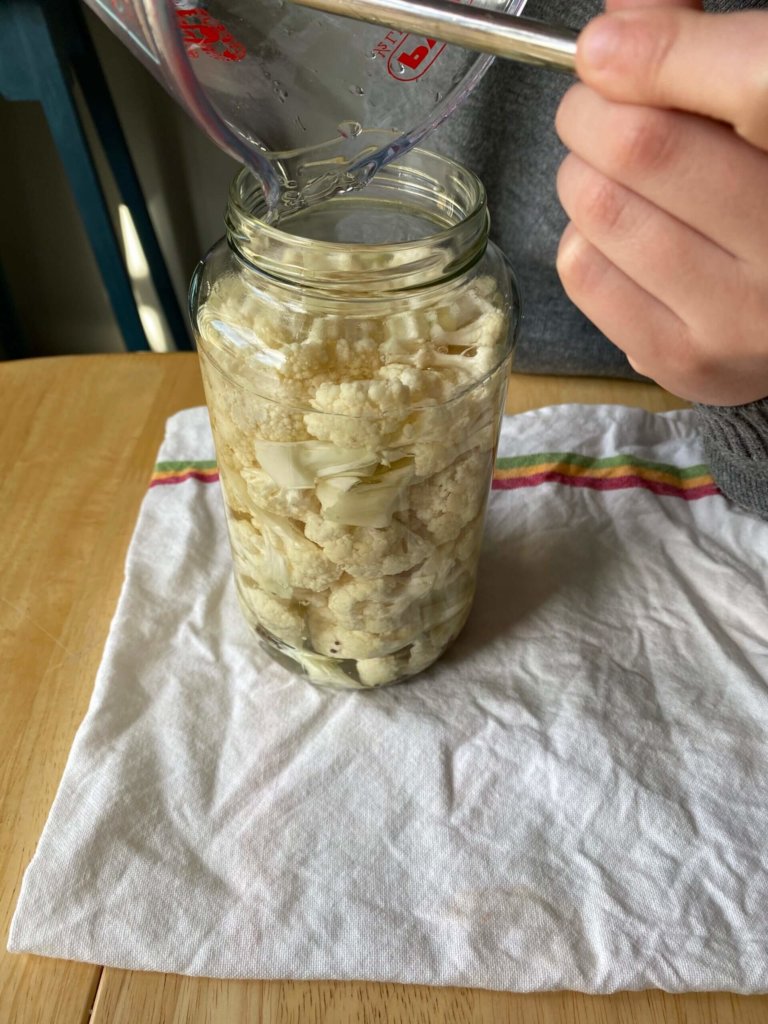
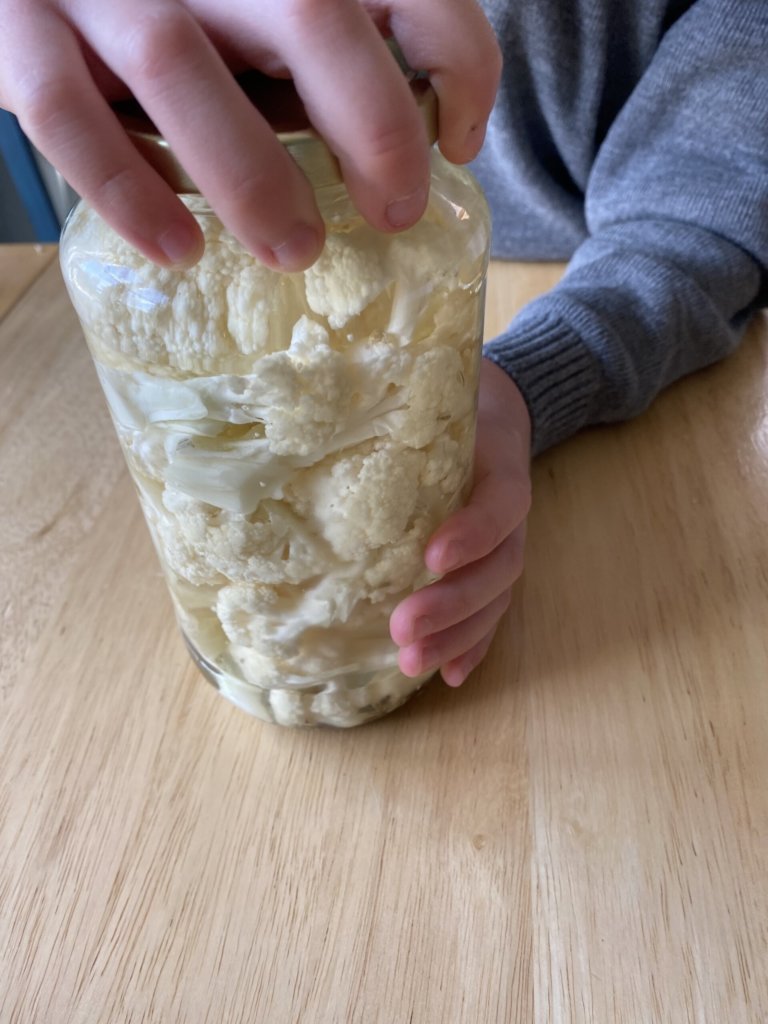
Easy Picked Probiotic Veggies
Ingredients for the carrot version:
Makes 1 large jar (1 quart size)
- Around 1 1/3 pounds (600g) carrots
- 2 cups (1 pint) filtered water
- 2 teaspoons finely ground sea salt
- ½ teaspoon mustard seeds (optional)
- ½ teaspoon fennel seeds (optional)
- 1 clove garlic (optional)
Ingredients for the cauliflower version:
Makes 1 large jar (1 quart size)
- Around 2/3 pound (300g) cauliflower (1 small)
- 3 cups (1 1/2 pints) filtered water
- 3 teaspoons finely ground sea salt
- ½ teaspoon mustard seeds (optional)
- ½ teaspoon fennel seeds (optional)
- 1 clove garlic (optional)
Method for Both:
- Wash the jars well with hot soapy water (or run through the dishwasher) and allow to dry well.
- Wash the vegetables well. Peel the carrots and slice them lengthwise into halves or quarters depending on their size. Trim them to the size of the jar if needed so they fit in the jar with about 2 inches of room left at the top. Cut the cauliflower into medium-sized florets.
- Put the spices into the bottom of the jar.
- Pack the vegetables into the jar. The tighter you can get them, the less likely they are to float. With the carrots in particular, make sure you pack the sticks in tightly so no more can fit.
- Dissolve the salt into the water in a separate container and pour the solution over the vegetables to fully cover them. If you need more brine, you can mix more up with the ratio of 1 teaspoon salt to 1 cup water.
- Loosely screw the lid on the jar and allow the vegetables to sit on the counter away from direct sun or heat for 1-3 days, depending on the warmth of the environment. (You can leave them for longer if you prefer a stronger/more fermented result). Put the jar on a plate in case the brine overflows slightly. Each day, open the jar and test the vegetables. They are ready when they taste “fizzy” and you see bubbles float to the surface of the water indicating that fermentation is occurring.
- Close the lid on the jar and transfer to the refrigerator where the vegetables will continue to slowly ferment. They can be eaten right away but taste even better and have more beneficial properties if you wait a week or two to eat them. These should keep well for a few months in the refrigerator once made.
